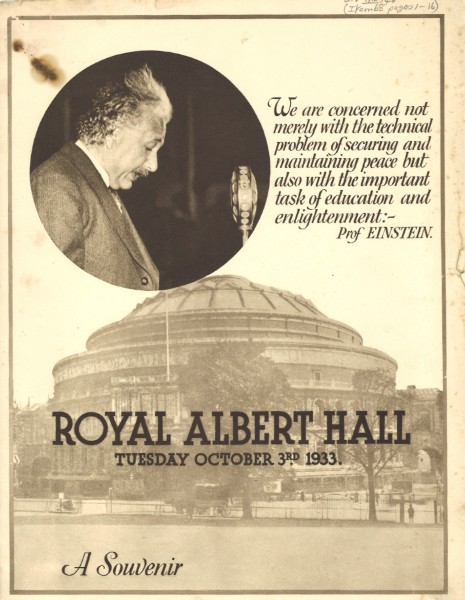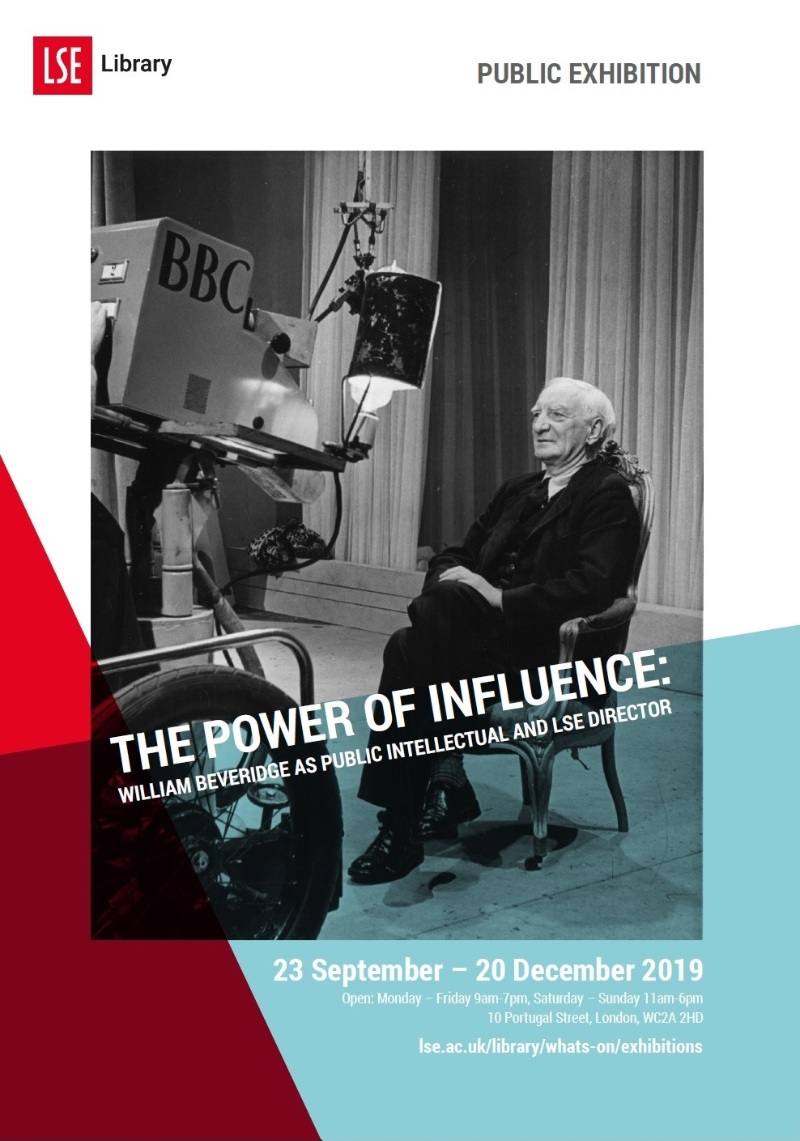In a new exhibition LSE Library is marking the centenary of the appointment of William Beveridge as one of LSE’s most influential and widely known Directors.
We take visitors on a journey through Beveridge’s time in charge at the School, during the turbulent 1920s and 30s, via the story of two schemes that he established whilst here.
The first was his attempt to establish a department which he hoped would explore the links between the natural and social sciences. Beveridge was a eugenicist, like many of his intellectual contemporaries, and he established the Department of Social Biology at the School in 1930. The department was headed by anti-eugenicist Lancelot Hogben and carried out scientific experiments which Beveridge hoped would lead to insights for the social sciences.
 Lancelot Hogben, Chair of the Department of Social Biology at LSE.
Lancelot Hogben, Chair of the Department of Social Biology at LSE.
Eugenics infamously informed the philosophy of Adolf Hitler and his adherents as they took power in Germany in the early 1930s, which is where the second of the exhibition's stories begins. One of the first laws passed by the Nazis made it illegal for ‘non-Aryan', predominantly Jewish, individuals to hold posts in the Civil Service which led to the dismissal of many judges, teachers and academics.
 A souvenir pamphlet from an event where Albert Einstein gave a speech supporting academic refugees fleeing persecution.
A souvenir pamphlet from an event where Albert Einstein gave a speech supporting academic refugees fleeing persecution.
Shaken by the treatment of academics, William Beveridge established the Academic Assistance Fund at LSE in 1933 which pooled donated money from teaching staff at the School to help support those seeking escape from Germany. The Fund eventually became the Society for the Protection of Science and Learning and would go on to help hundreds of people escape totalitarian regimes. It remains operational today as the Council for At-Risk Academics.

Events
View a list of all upcoming LSE Library events, many of which are related to this exhibition.
Explore these collections
If you are interested in archive material related to this exhibition, have a look at our collection highlights which are a good introduction to our collections.
Whilst we are hosting this listing, LSE Events does not take responsibility for the running and administration of this event. While we take responsible measures to ensure that accurate information is given here (for instance by checking the room has been booked) this event is ultimately the responsibility of the organisation presenting the event.